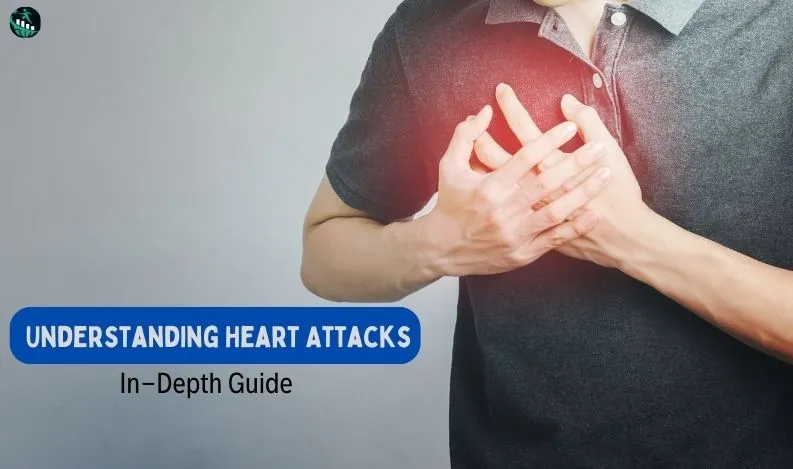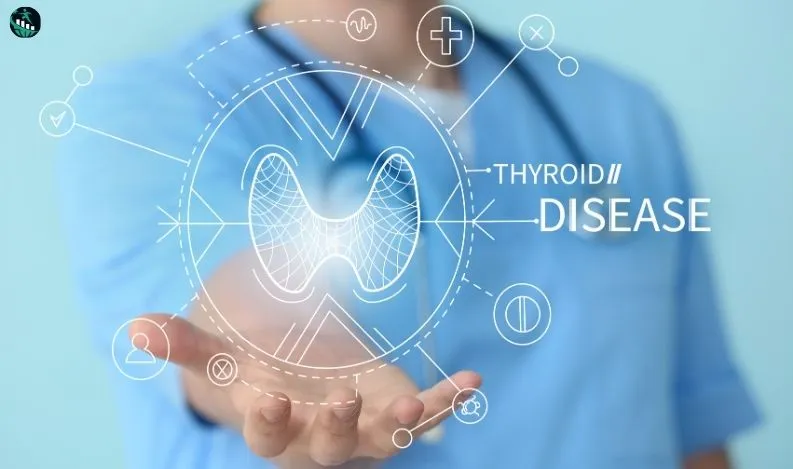
Understanding Heart Attacks: An In-Depth Guide
Heart attacks, medically known as myocardial infarctions, are critical medical emergencies that require immediate attention. This comprehensive guide delves into the causes, symptoms, diagnosis, treatment, prevention, and more. By understanding these aspects, you can better prepare to recognize and respond to this life-threatening condition.
What is a Heart Attack?
Definition
A heart attack occurs when the blood flow to a part of the heart muscle is blocked. This blockage is usually caused by a blood clot in the coronary arteries, which supply blood to the heart. The lack of oxygen-rich blood can cause the affected heart muscle to die, leading to severe damage or death if not treated promptly.
Key Points:
• Blockage of Blood Flow: Typically caused by a blood clot in the coronary arteries.
• Lack of Oxygen: Leads to the death of heart muscle cells.
• Urgency: Immediate medical treatment is crucial to restore blood flow and minimize damage.
Signs and Symptoms of a Heart Attack
Recognizing the signs and symptoms of a heart attack is vital for timely intervention. Symptoms can vary between individuals but commonly include:
Chest Pain or Discomfort
• Description: Feels like pressure, squeezing, fullness, or pain.
• Radiation: Can spread to the arms, neck, jaw, back, or stomach.
Shortness of Breath
• Accompaniment: Often occurs with chest discomfort but can also happen independently.
Other Symptoms
• Nausea and Vomiting: Often mistaken for indigestion.
• Lightheadedness or Dizziness: Can lead to fainting.
• Cold Sweat: A sudden onset of sweating without a clear cause.
• Fatigue: Particularly in women, who may also experience back or jaw pain.
Differences Between Sexes
• Men: More likely to experience classic chest pain.
• Women: More likely to have atypical symptoms like shortness of breath, nausea, and fatigue.
Causes of Heart Attacks
Understanding the underlying causes of heart attacks can help in prevention and management. The primary causes include:
Coronary Artery Disease (CAD)
• Atherosclerosis: Buildup of plaque in the coronary arteries. This plaque consists of fat, cholesterol, and other substances that can narrow or block the arteries.
• Plaque Rupture: When the plaque ruptures, a blood clot can form and block the artery, preventing blood flow to the heart muscle.
Other Causes
• Coronary Artery Spasm: Sudden tightening of the artery, which can temporarily restrict blood flow.
• Rare Conditions: Diseases causing abnormal narrowing of blood vessels, such as certain autoimmune diseases.
• Trauma: Physical injury to the coronary arteries.
• Embolism: A blood clot or air bubble traveling to the coronary artery from another part of the body.
Risk Factors
• Non-modifiable: Age, sex, family history.
• Lifestyle: Smoking, poor diet, lack of exercise, excessive alcohol consumption.
• Health Conditions: Diabetes, obesity, high blood pressure, high cholesterol, eating disorders, preeclampsia.
Diagnosis and Tests
Accurate diagnosis of a heart attack involves several tests and assessments to confirm the condition and determine its severity.
Physical Examination
• Vital Signs: Pulse, blood pressure, and blood oxygen levels.
• Symptoms Review: Discussion of experienced symptoms and medical history.
Diagnostic Tests
• Blood Tests: Checking for cardiac troponin levels, which indicate heart muscle damage.
• Electrocardiogram (EKG/ECG): Detects electrical activity and rhythm abnormalities, helping to identify the affected area of the heart.
• Echocardiogram: Ultrasound imaging of the heart to assess heart function and detect areas of damage.
• Coronary Angiogram: X-ray imaging with contrast dye to visualize blockages in the coronary arteries.
• Heart CT/MRI: Detailed imaging of the heart and blood vessels to identify areas of blockage and damage.
• Exercise Stress Test: Assesses blood flow during physical activity by monitoring the heart's response to exercise.
• Nuclear Heart Scans: Uses radioactive dye and imaging techniques to identify areas with poor blood flow or damage.
Management and Treatment
The goal of heart attack treatment is to restore blood flow to the affected heart muscle as quickly as possible. Treatment options include medications and surgical interventions.
Medications
• Anti-clotting Agents: Aspirin and other blood thinners to prevent further clotting.
• Nitroglycerin: Relieves chest pain and widens blood vessels to improve blood flow.
• Thrombolytics: Clot-busting drugs used within the first 12 hours to dissolve blood clots.
• Anti-arrhythmia Drugs: Prevent or correct abnormal heart rhythms.
• Pain Medications: Often morphine to alleviate severe chest pain.
• Beta-blockers: Slow down the heart rate and reduce the heart's workload.
• Antihypertensives: Lower blood pressure to reduce strain on the heart.
• Statins: Stabilize plaque, lower cholesterol, and reduce the risk of another heart attack.
Percutaneous Coronary Intervention (PCI)
• Procedure: Also known as angioplasty, involves using a catheter to open the blocked artery.
• Stent Placement: A stent may be inserted to keep the artery open and prevent future blockages.
Coronary Artery Bypass Grafting (CABG)
• Procedure: Uses a blood vessel from another part of the body to bypass the blocked artery, creating a new pathway for blood flow.
• Recovery: Longer hospital stay and recovery period compared to PCI, but can be very effective for severe blockages.
Prevention Strategies
While some risk factors for heart attacks are unavoidable, many can be managed or mitigated through lifestyle changes and medical interventions.
Lifestyle Changes
• Regular Checkups: Annual visits to a primary care provider to monitor heart health.
• Quit Smoking: Includes all tobacco and vaping products to reduce heart disease risk.
• Exercise Regularly: Aim for 30 minutes of moderate activity five days a week to improve cardiovascular health.
• Healthy Diet: Follow a Mediterranean or Dash diet, focusing on plant-based foods, whole grains, and healthy fats.
• Maintain a Healthy Weight: Consult with healthcare providers for personalized advice on achieving and maintaining a healthy weight.
• Stress Management: Techniques like yoga, deep breathing, and meditation to reduce stress levels.
• Adhere to Medications: Take prescribed medications consistently to manage existing health conditions.
• Attend Medical Appointments: Regular follow-ups with healthcare providers to monitor and manage heart health.
Cardiac Rehabilitation
• Programs: Structured programs focusing on exercise, education, and counseling to improve heart health.
• Goals: Reduce the risk of a second heart attack and improve overall health and quality of life.
Outlook and Prognosis
Survival rates for heart attacks have improved due to advances in treatment, but the prognosis depends on several factors.
Factors Affecting Prognosis
• Age: Higher risk for those over 65, as older adults are more likely to have other health conditions that complicate recovery.
• Pre-existing Conditions: Heart failure, diabetes, and previous heart attacks can worsen the outlook.
• Sex Differences: Premenopausal women have better outcomes than men of the same age due to protective effects of estrogen; postmenopausal women fare worse due to the loss of this protection.
Recovery and Follow-up
• Hospital Stay: Varies based on treatment type; medication-only treatment typically involves a six-day stay, PCI about four days, and CABG eight to twelve days.
• Post-hospital Care: Continued medication, lifestyle changes, and participation in cardiac rehabilitation programs to support recovery and prevent future heart attacks.
Long-term Management
• Medications: Long-term use of beta-blockers, ACE inhibitors, blood thinners, and statins to manage heart health.
• Follow-up Monitoring: Regular heart scans and stress tests to monitor heart function and detect any issues early.
• Emergency Response: Knowing when to call emergency services and recognizing symptoms early to ensure prompt treatment.
Living with a Heart Attack
Life after a heart attack involves ongoing care and lifestyle adjustments to prevent recurrence and manage heart health.
Self-care
• Medications: Adherence to prescribed drugs to manage heart health and prevent complications.
• Lifestyle: Maintaining a heart-healthy lifestyle through diet, exercise, and stress management.
• Regular Checkups: Continuous monitoring of heart health through regular visits to healthcare providers.
When to Seek Emergency Help
• Recognizing Symptoms: Immediate medical attention for chest pain, shortness of breath, or other heart attack symptoms to ensure timely treatment.
• Emergency Transport: Calling 911 instead of driving to the hospital for faster, more effective care by first responders.
Questions for Your Doctor
• Activity Guidelines: What physical activities are safe post-heart attack, and when can you resume normal activities?
• Prevention Strategies: Key steps to avoid another heart attack and maintain heart health.
• Follow-up Schedule: Frequency of checkups and necessary tests to monitor recovery and prevent future issues.
• Family Health: Should other family members undergo heart health assessments to identify any genetic risk factors?
Additional Common Questions
Why Call 911 Instead of Driving to the Hospital?
• Early Treatment: First responders can begin early testing and treatment en route to the hospital.
• Immediate Care: Ambulance transport typically leads to faster access to emergency care, as patients arriving by ambulance often receive priority.
• Safety: Prevents the risk of passing out and causing an accident while driving, ensuring you and others remain safe.
Final Thoughts
Heart attacks are serious medical emergencies that require prompt treatment. By understanding the causes, symptoms, diagnosis, treatment, and prevention strategies, you can be better prepared to respond effectively and manage your heart health. Remember, timely medical intervention can save lives and improve outcomes.
.Also Read:-







Recent Comments: